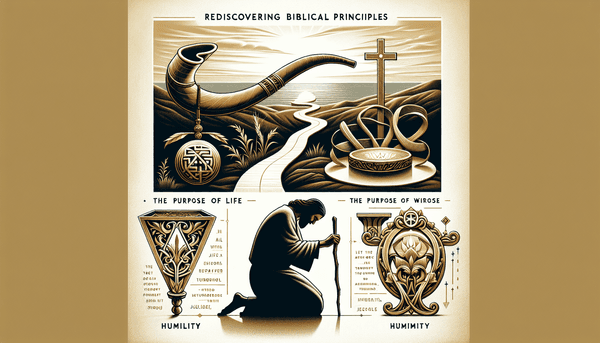Understanding Faith through Peter’s Declaration
In the Gospel of Matthew, a transformative conversation unfolds between Jesus and His disciples. 'But what about you?' Jesus asked, 'Who do you say I am?' Simon Peter's declaration, 'You are the Messiah, the Son of the living God,' marks a cornerstone in biblical history (Matthew 16:15-18). This moment is not merely about the spoken words; it is the divine revelation imparted to Peter that resonates through the ages. Jesus proclaims that the understanding of His true nature is a blessing not of earthly origin but revealed by God the Father. It is upon this rock of revelation that Jesus vows to build His church, a promise that the gates of Hades will not prevail against it. The apostle Paul later reiterates this foundation, stating that the church is 'built on the foundation of the apostles and prophets, with Christ Jesus himself as the chief cornerstone' (Ephesians 2:20). The passage from Matthew encourages believers to anchor their faith in the recognition of Jesus as the Messiah, just as Peter did, and to become living stones in the spiritual house of God (1 Peter 2:4-5).
Mental Health: The Bible’s Perspective on Substance Use
While the Bible may not explicitly mention cannabis, it does provide guidance on how to approach substances like alcohol. Believers are urged to avoid intoxication and to be filled with the Spirit instead (Ephesians 5:18). The body is to be treated as a temple of the Holy Spirit, to be honored and cared for, recognizing that we are not our own but have been purchased at a price (1 Corinthians 6:19-20). Wisdom literature also cautions against the overconsumption of wine and strong drink, which can lead to reckless behavior (Proverbs 20:1). In contrast, the fruit of the Spirit includes self-control, a quality that helps believers maintain moderation and make wise choices (Galatians 5:22-23). The Biblical approach to substances is about respecting our bodies and minds, making decisions that honor God and reflect the transformative work He is doing within us (Romans 12:1-2).
Personal Struggles: Coping with Anxiety, Financial Hardship, and Sexual Purity
The Bible does not shy away from addressing the myriad of personal struggles that we face, including anxiety, financial hardship, and the pursuit of sexual purity. It offers a comforting promise that by presenting our requests to God through prayer and petition with thanksgiving, we can experience peace that transcends understanding (Philippians 4:6-7). In times of financial difficulty, the scriptures remind us to cast our cares on the Lord, who will sustain us (Psalm 55:22). When faced with the challenge of maintaining sexual purity, the Word encourages us to flee from sexual immorality and honor God with our bodies, recognizing that we are members of Christ Himself (1 Corinthians 6:18-20). The Bible provides not only the prescription for these challenges but also the assurance that God hears the cries of the afflicted and is near to the brokenhearted (Psalm 34:17-18).
FAQ
Q: Who do you say I am?
A: Jesus asked this critical question to His disciples, prompting a declaration of faith from Simon Peter, who recognized Jesus as the Messiah, the Son of the living God (Matthew 16:15-16).
Q: How should we treat our bodies according to the Bible?
A: The Bible teaches that our bodies are temples of the Holy Spirit and should be treated with honor and respect. We are called to glorify God with our bodies, which includes making wise choices regarding substances and our overall health (1 Corinthians 6:19-20).
Q: What guidance does the Bible provide for coping with anxiety?
A: The Bible encourages us to present our concerns to God through prayer and petition, promising that His peace will guard our hearts and minds in Christ Jesus (Philippians 4:6-7).
Q: How does the Bible address sexual purity?
A: The scriptures exhort us to flee from sexual immorality and to honor God with our bodies, emphasizing that we are members of Christ's body (1 Corinthians 6:18-20).






